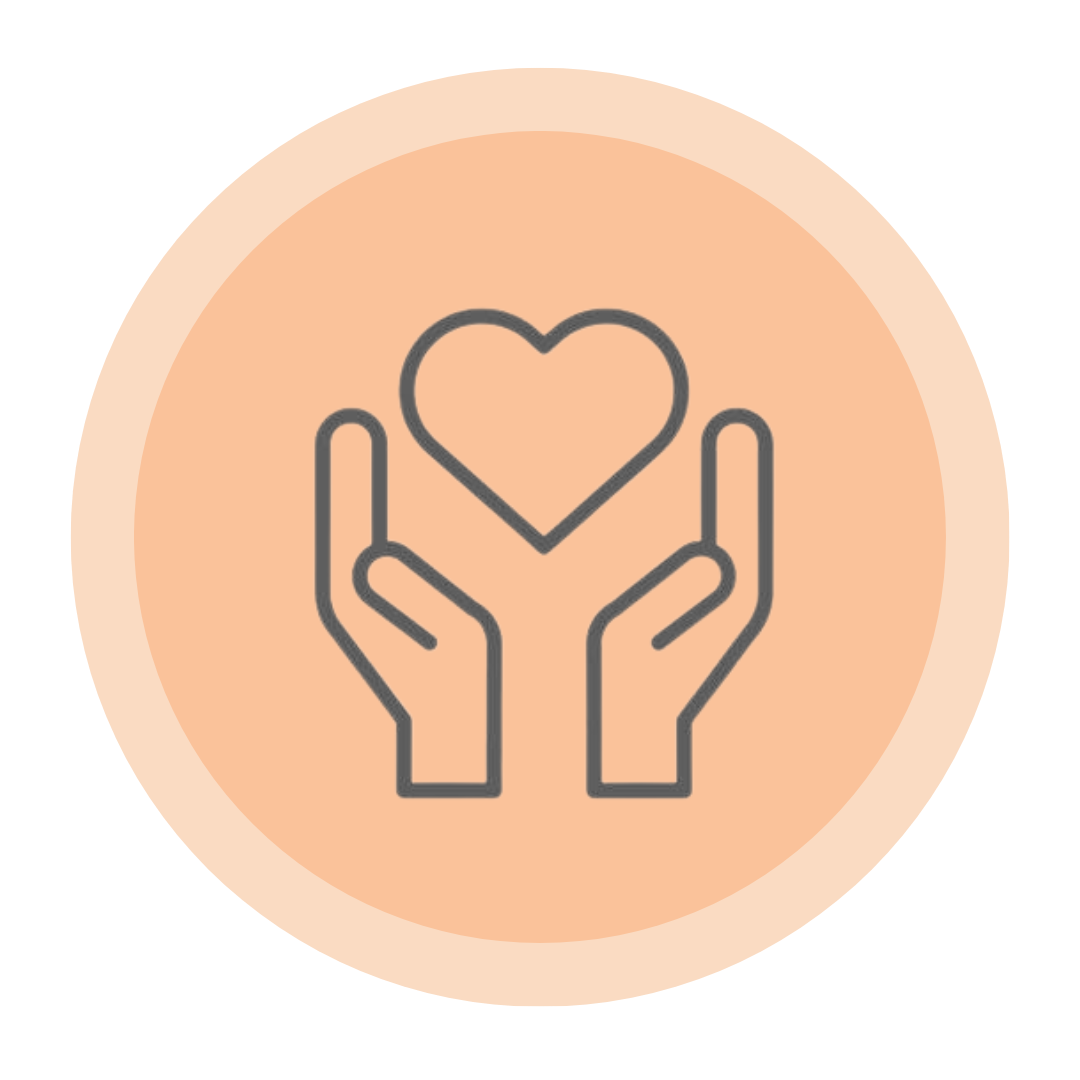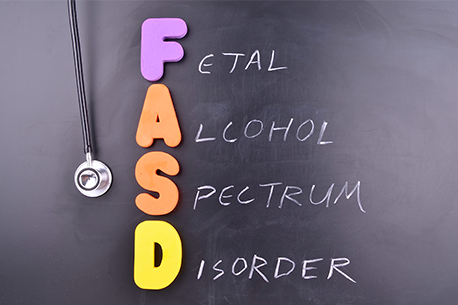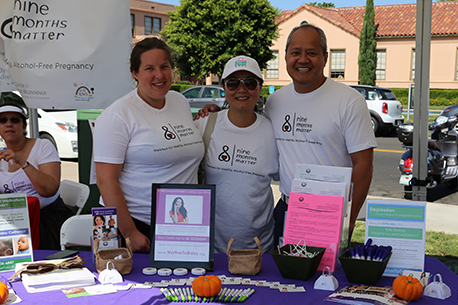Institute for Fetal Alcohol Spectrum Disorders Discovery (IFASDD)
A Program Integrating Research, Education & Screening Services
The Center for Better Beginnings is home to an integrative program to provide education, screening, and research on Fetal Alcohol Spectrum Disorders (FASD), and to provide support to families affected by these conditions.
Led by Dr. Kenneth Lyons Jones, the physician who co-identified fetal alcohol syndrome in 1973, and Andrea Torzon, our Institute for Fetal Alcohol Spectrum Disorders Discovery (IFASDD) is the nation’s leading epicenter for work to prevent alcohol-exposed pregnancies and to assist those who are affected. As a multidisciplinary center, IFASSD brings together medical physicians, researchers, parent advocates and educators as a think-tank for this under-recognized disorder.
Discover Our Program
Click on an Icon to Explore
 |
 |
 |
 |
 |
 |

Screening Services
Detecting Alcohol-based Birth Defects
IFASDD provides screening services to at-risk children who may have been impacted by prenatal alcohol exposure. FASD screenings are provided to children receiving services from Kidstart (an early intervention program run by Rady Children’s Hospital-San Diego), as well as youth involved with the juvenile justice system. Children who screen positive are then referred to Dr. Jones at UC San Diego Health Pediatrics in Kearny Mesa or Dr. Miguel del Campo at Rady Children’s Hosptial FASD Clinic for a comprehensive diagnostic evaluation.
Research & Discovery
 Broadening the Scope of Understanding
Broadening the Scope of Understanding
The multidisciplinary nature of IFASDD makes innovative research possible. A few examples of projects include:
- A study to determine the national prevalence of FASD in the United States.
- An intervention study evaluating whether choline (a nutritional supplement) can reduce the severity of cognitive deficits associated with FASD.
- Testing an intervention to reduce alcohol exposure among American Indian/Alaska Native people of reproductive age.
- An ongoing 15+ year study in Ukraine that has examined several different questions about how we can better identify and prevent FASD.
- A study examining if alcohol exposure can be identified in discarded baby teeth
Read more about our pioneering efforts to understand the impact and scope of problems associated with prenatal alcohol exposure.
Promoting Alcohol-Free Pregnancies
To Prevent Prenatal Alcohol Exposure
Drinking alcohol during pregnancy causes serious damage to a developing baby’s brain; in fact, it causes more damage than cocaine, heroin, and marijuana combined. Prenatal alcohol exposure is the nation’s leading cause of preventable birth defects. FASD is the range of neurological disorders associated with prenatal alcohol exposure and includes physical birth defects as well as difficulties with learning and behavior. There is no cure for FASD, only support services for children affected by the condition and their families. However, FASD is 100% preventable by not drinking alcohol during pregnancy.
Our Vision
Preventing FASD and Helping People Living with an FASD
Imagine a world where everyone knows the dangers of prenatal alcohol exposure — together, we can do this!

Our Goal
Reduce the number of children born with FASD.
Our Objectives
To accomplish this goal, the following will be required:
- Community advocacy
- Educational seminars, on-demand webinars, and workshops
- School education
-
- Research & clinical practice
- Multicenter research sites
- Integrated programming
- Clinical and Support Services for affected children and families
Community advocacy is critical in raising awareness about FASD and the fact that it is 100% preventable. We want to make sure that those who are pregnant, planning a pregnancy, or at risk for unplanned pregnancy fully understand the lifelong damage that alcohol use can cause a developing baby. We also want to make sure that shame and judgment of mothers who have children with FASD is eliminated. Children who are affected by prenatal alcohol exposure must get the support they need at home and in school. Finally, researchers need funding to support their work with families and children affected by FASD to develop effective prevention strategies and intervention tools.
Educational workshops, on-demand webinars, and seminars to train health and social service professionals and the general public on FASD are essential to support our community. Trainings for medical providers, educators, social workers, criminal justice workers, caregivers, and others in the health and human services sector are needed to allow for a better understanding of the physical, behavioral, and cognitive challenges faced by people with an FASD and to help eliminate alcohol exposure during pregnancy.
Schools need to be able to educate students about the increasing number of public health issues for which they are at risk. The risks of alcohol consumption during pregnancy need to be taught during health classes in an understandable and effective way when it is developmentally appropriate to do so.
Research is critical to ensure there are effective programs to prevent prenatal alcohol exposure as well as evidence-based interventions and treatments for children diagnosed with FASD. By supporting research centers, we can share best practices in prevention, intervention, and treatment of FASD.
Research centers need to become integrated with clinical practice and support services. Dr. Ken Jones leads research and clinical services at UC San Diego in the field of preventable birth defects. In 1973, Dr. Jones and his mentor were the first physicians to describe Fetal Alcohol Syndrome in the U.S. Since that time, Dr. Jones has been a health provider, researcher, and an advocate for families affected by FASD. As his integrative program, the Institute for Fetal Alcohol Spectrum Disorders Discovery (IFASDD) illustrates, families benefit the most when clinical practice and research inform one other.
Clinical and support services for affected children and families are critical for those impacted by FASD. It is incredibly difficult for children living with FASD to get the necessary medical, behavioral, and educational services they need, in part because medical professionals are not adequately trained on FASD. The development of a universal coding system to classify FASD is an urgent need, as is better curricula and continuing education programs for medical, allied health professional, and mental health providers. Similarly, those in the fields of childhood education, special education, and juvenile justice need to be trained on how FASD may impact the children with whom they interact.
Together we can jump start immediate action. Share in our vision of all children being born FASD-free. Contact us to get involved or donate today!
Community Outreach & Advocacy
Increasing Public Awareness of FASD
Many people are unaware of how damaging alcohol can be for a developing baby. No amount or type of alcohol has been found to be safe in pregnancy. Drinking only non-alcoholic beverages both while trying to get pregnant and for all nine months of pregnancy is the only way to prevent FASD.
Alcohol is what medical professionals call a “teratogen”, or an agent that can disrupt the development of the embryo or fetus and can cause birth defects. Alcohol crosses the placenta and easily enters a developing baby’s bloodstream. Alcohol causes the most damage to the developing brain, but it can also affect other critical organs, structures, and systems in the body. Alcohol at any time during pregnancy can result in a wide range of physical, intellectual, and learning disabilities known as Fetal Alcohol Spectrum Disorders (FASD).
The American Academy of Pediatrics, the American College of Obstetricians and Gynecologists, and the Centers for Disease Control and Prevention agree that prenatal alcohol exposure can lead to miscarriage, stillbirth, premature labor, birth defects, and FASD. They all recommend that alcohol be avoided during pregnancy.
FASD is preventable. Be #FASDInformed. Let’s act now!
Professional Workshops
Supporting Our Communities to Prevent FASD
We offer trainings about FASD to a range of audiences in the San Diego region, including physicians, nurses, social workers, psychologists, attorneys, probation officers, students, and educators. Topics include an overview of FASD, its clinical presentation, the neurobehavioral aspects and effects of prenatal alcohol exposure on a child’s behavior and educational functioning, and a summary of current research, interventions, and parent perspectives. Our in-service workshops are specifically tailored to professionals working with communities affected by FASD. If you are interested in scheduling a FASD workshop, let us know by filling out our Workshop Request Form.
